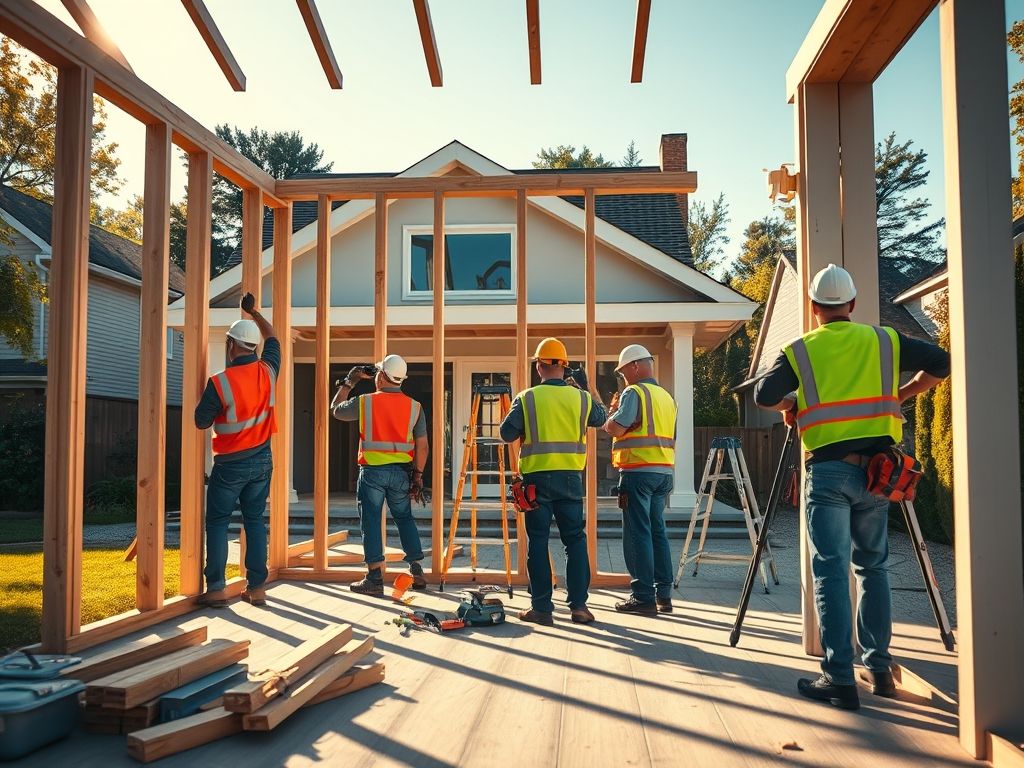What is Construction Industry?
The construction industry encompasses a broad range of activities and services involved in the building of structures, infrastructure, and various forms of real estate. This industry plays a vital role in economic development, creating jobs, and providing essential services to homeowners and businesses alike.
In Massachusetts, the construction industry is particularly significant due to the state’s rich historical architecture and ongoing urban development. Whether it’s residential renovations in Boston or large-scale commercial projects in Worcester, the construction industry shapes the landscape of our communities.
Understanding the Components of the Construction Industry
The construction industry can be broken down into several key components, which include:
- Residential Construction: This involves building, renovating, or improving homes and apartments.
- Commercial Construction: This includes the construction of office buildings, retail spaces, and other commercial properties.
- Industrial Construction: This sector focuses on building factories, warehouses, and other industrial facilities.
- Infrastructure: This encompasses public works projects such as roads, bridges, and utilities.
Each of these components plays a crucial role in the overall construction ecosystem, contributing to the economy and improving the quality of life for residents.
Major Players in the Construction Industry
The construction industry is made up of various stakeholders, including:
- Contractors: Professionals who oversee construction projects, ensuring they are completed on time and within budget.
- Subcontractors: Specialists hired by contractors to perform specific tasks, such as plumbing, electrical work, or roofing.
- Architects: Individuals who design buildings and structures, focusing on both aesthetics and functionality.
- Engineers: Professionals who apply scientific principles to design and construct infrastructure, ensuring safety and efficiency.
- Suppliers: Companies that provide materials, tools, and equipment necessary for construction projects.
Understanding the roles of these players can help homeowners and real estate investors make informed decisions when engaging with the construction industry.
Current Trends in the Massachusetts Construction Industry
As the construction industry evolves, several trends are emerging, particularly in Massachusetts:
- Sustainable Construction: Increasing focus on eco-friendly building practices and materials to reduce environmental impact.
- Smart Technology: Incorporation of advanced technologies such as Building Information Modeling (BIM) and project management software.
- Labor Shortages: Addressing the shortage of skilled labor through training programs and recruiting initiatives.
- Urban Development: Ongoing revitalization projects in cities like Boston, enhancing urban living and business opportunities.
Homeowners and contractors must stay informed about these trends to leverage them effectively in their projects.
Practical Applications of Construction Industry Knowledge
Here’s how homeowners, real estate investors, and contractors can apply their knowledge of the construction industry:
- Planning Renovations: Understanding the construction process helps homeowners plan renovations better, anticipating costs and timelines.
- Investment Decisions: Real estate investors can analyze market trends and construction forecasts to identify lucrative investment opportunities.
- Contractor Selection: Knowledge of the industry allows homeowners to vet contractors effectively, ensuring quality work.
- Regulatory Compliance: Awareness of local building codes and regulations helps ensure projects comply with legal standards.
By applying these insights, individuals can navigate the construction landscape more effectively and make informed decisions.
Related Concepts in the Construction Industry
Several related concepts are integral to understanding the construction industry:
- Building Codes: Regulations governing the construction of buildings to ensure safety and compliance.
- Project Management: The discipline of planning, executing, and closing projects efficiently.
- Real Estate Development: The process of improving land for residential, commercial, or industrial use.
These concepts interconnect with the construction industry, providing a broader context for homeowners and investors.
Conclusion
The construction industry is a dynamic and essential part of the Massachusetts economy, impacting homeowners, contractors, and investors alike. By understanding its components, major players, current trends, and practical applications, individuals can make informed decisions that enhance their projects and investments.
Incorporating knowledge about the construction industry into your planning and decision-making processes not only leads to better outcomes but also empowers you to engage more effectively with professionals in the field.
For those looking to embark on a construction project, whether a simple home renovation or a complex commercial build, being informed about the construction industry is your first step towards success.







